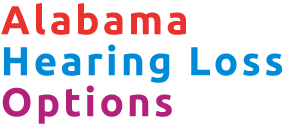About

Development of this website involved multiple agencies working collaboratively to provide Alabama’s families of children who are deaf or hard of hearing with true options in our state.
About Alabama Hearing Loss Options
The approach to communication that a family chooses for a child who is deaf or hard of hearing is perhaps the most important decision parents will make. No one approach is right for all children. Parents need information regarding the options that are available to make an informed choice. Parents must understand the principles of each approach, the training required, and the family responsibilities associated with each approach.
Alabama Hearing Loss Options is a tool to help families make decisions regarding which mode of communication to use with their child who is deaf or hard of hearing. The goal of this program is to develop a systematic, comprehensive method of delivering non-biased, research-based information to families so that they are be better equipped to make informed choices.
Our Goals
The focus and goals of this program were informed by Joint Committee on Infant Hearing (JCIH) to guidance and principles including, but not limited to the following:
Terminology conventions outlined in the JCIH Year 2019 Position Statement were followed as well.

Support and Information
By encouraging parents and caregivers to act early, be involved, and check out their choices, the website will support family engagement and informed decision making with resulting positive impacts on timeliness of intervention efforts on behalf of and outcomes for Alabama’s infants and children who are deaf or hard of hearing.
This project was made possible by grant number 90TP0065. Its contents are solely the responsibility of the authors and do not necessarily represent the official view of the United States Department of Health and Human Services, Administration for Children and Families.”
The good news is that options are available that allow children who are deaf or hard hearing receive the ‘time in language’ they need to succeed.
